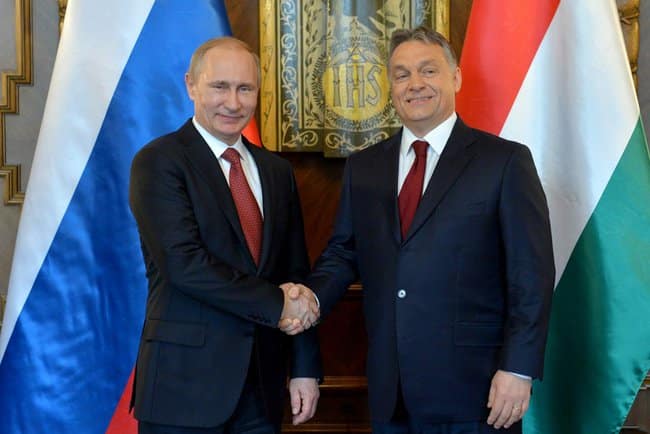A coalition of European Union member states is exploring options to circumvent Hungarian Prime Minister Viktor Orbán’s repeated veto threats over sanctions on Russia, diplomatic sources say. The emerging plan involves individual EU countries adopting the sanctions into their own national legislation, thereby diminishing Hungary’s ability to block future renewals at the EU level.
Under current EU rules, sanctions must be unanimously approved by all 27 member states and renewed every six months. However, Hungary has consistently used its veto power or threatened to do so, particularly in matters relating to sanctions tied to Russia’s war on Ukraine. In response, several EU nations are now weighing the possibility of enacting national-level sanctions to maintain pressure on Moscow, regardless of consensus at the EU level.
Orbán’s refusal to endorse EU conclusions on the Russia-Ukraine conflict and his ongoing opposition to sanctions targeting Russian oil, gas, and nuclear technology have increasingly isolated Hungary within the EU. His stance has led to growing frustration among member states seeking unity in their response to the war.
According to insiders, at least six EU governments — including traditionally cautious countries like Belgium and the Czech Republic — are seriously considering implementing their own sanctions frameworks. While not all EU members are likely to take this route, the support of key nations could significantly mitigate the consequences of Hungary’s veto.
The proposal remains in its formative stages, and diplomats warn of practical and legal challenges ahead. Some countries may lack the domestic legal structures necessary to impose sanctions independently, and acting outside the EU framework could weaken the coherence and impact of the sanctions regime.
Nonetheless, with the EU preparing to unveil a 17th sanctions package against Russia, momentum is building to find a workaround to prevent a single member state from derailing collective action. “We must be prepared for the possibility that sanctions won’t be renewed,” one EU diplomat said. “We need to build resilience into the entire sanctions process.”
The initiative also reflects broader tensions between Hungary and its EU counterparts, particularly regarding rule-of-law concerns. Germany’s governing coalition has reportedly advocated for suspending voting rights of member states that violate EU principles—a move seen as largely aimed at Hungary.
While the national sanctions strategy is viewed by some as a practical solution, it also raises concerns about potential fractures in the EU’s foreign policy. Czech Foreign Minister Jan Lipavský warned, “If you take away veto power on vital national interests, it’s not just Hungary at stake. Many countries have core interests. Weakening this principle risks weakening Europe as a whole.”
The debate highlights the delicate balance between unity and sovereignty within the EU, as it navigates unprecedented geopolitical challenges.




 Meanwhile, Hungary’s just over there like, “What’s a little veto among friends?”
Meanwhile, Hungary’s just over there like, “What’s a little veto among friends?” 

 I mean, who knew a country could hold the entire EU hostage over a few sanctions like it’s a game of Monopoly?
I mean, who knew a country could hold the entire EU hostage over a few sanctions like it’s a game of Monopoly? 

 Who knew the EU was just one veto away from turning into a game of legislative charades!
Who knew the EU was just one veto away from turning into a game of legislative charades! 
 Classic case of ‘if you can’t beat them, just sidestep their drama, innit?
Classic case of ‘if you can’t beat them, just sidestep their drama, innit? Because who doesn’t love a little chaos in geopolitics, eh?
Because who doesn’t love a little chaos in geopolitics, eh? 










Leave a Reply